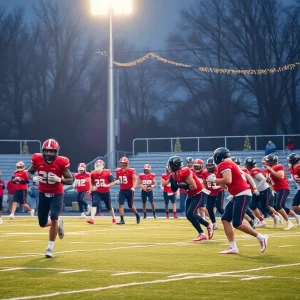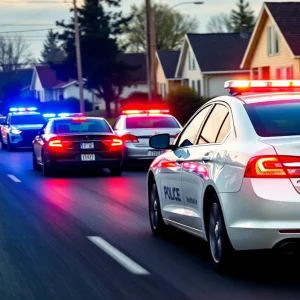Memphis Trial of Former Officers Continues to Illuminate the Events Surrounding Tyre Nichols’ Death
MEMPHIS, Tenn. — The courtroom buzzes with energy as the third week of the highly publicized federal trial of three former Memphis Police officers unfolds. Charged in the heartbreaking beating death of Tyre Nichols, the case has captivated the community and beyond, as witnesses continue to offer their testimonies. With the prosecution having rested its case on Thursday, the defense is now bringing their arguments to the table. As the trial proceeds, the stakes remain high, and the atmosphere continues to reflect the gravity of the situation.
Testimony Unfolds
On Friday morning, the defense presented their first witness, Samantha Spencer, a forensic biology expert who formerly worked as a special agent forensic scientist for the Tennessee Bureau of Investigation. Spencer’s testimony involved results from DNA testing on the boots of two of the accused officers, Demetrius Haley and Emmitt Martin, which revealed the presence of Tyre Nichols’ DNA. This interesting twist underscores the complex nature of the evidence being examined in the courtroom.
Next up was John Tisdale, a use-of-force expert called to the stand by the legal team representing Tadarrius Bean. Tisdale, who has a wealth of experience having served as a police chief in several cities, testified on the procedures and training that officers undertake. His review of body camera and surveillance footage allowed him to assess the baton strikes and kicks inflicted on Nichols in light of both local and national use-of-force policies.
Training Insights
Earlier in the proceedings, a trainer from the Memphis Police Department academy highlighted the limited training officers receive on critical topics such as handcuffing and baton usage, which amounts to just four hours. Tisdale emphasized that this is simply not enough training, arguing that police officers require more comprehensive instruction to handle such critical situations effectively. He stressed the importance of proper conduct, noting that once medical personnel arrive at a scene, it’s imperative for officers to step aside and let them take charge.
During a back-and-forth exchange, Tisdale pointed out the expectation that officers, like Bean, take action when responding to a dispatch call. When asked what would happen if Bean did not respond adequately, Tisdale didn’t hold back, stating, “He wouldn’t work for me anymore.” His insights have proven to be particularly thought-provoking, drawing on his extensive experience in law enforcement.
Character Witnesses Speak
The defense also called on character witnesses, like Bryant McKinney, a former officer who graduated alongside Bean. Describing Bean as humble and dedicated, McKinney painted a picture of a person grounded in service. However, the prosecution countered with pointed questions regarding whether such selflessness would align with the actions taken during the incident in question.
Another witness, Garrett O’Brien, recounted his experience as a former MPD officer and trainer. O’Brien highlighted that techniques like “hammer blows” and “palm strikes” are part of standard training. He reminded the jury that these techniques should only be employed when necessary and should match the suspect’s level of resistance.
Expert Opinions and Legal Standards
A notable moment came when Don Cameron, a veteran police trainer, addressed hypothetical scenarios surrounding the use of force. His responses shone a light on the often murky waters of law enforcement protocols, particularly when it comes to determining what constitutes appropriate force.
Cameron reinforced that if a suspect is actively resisting, certain actions like a kick to the torso may be justified. Yet, he cautioned that any actions leading to death would classify as deadly force. These intense discussions underline the tension that exists around the conduct expected from law enforcement and the reality of high-stakes encounters they face.
Looking Ahead
As court wrapped up on Friday, the anticipation built for what’s next. The trial will resume on Monday morning, with more defense witnesses expected to take the stand. As each day unfolds in the courtroom, the community remains glued to the developments, all hoping for clarity in what has been a painful chapter for Memphis.








